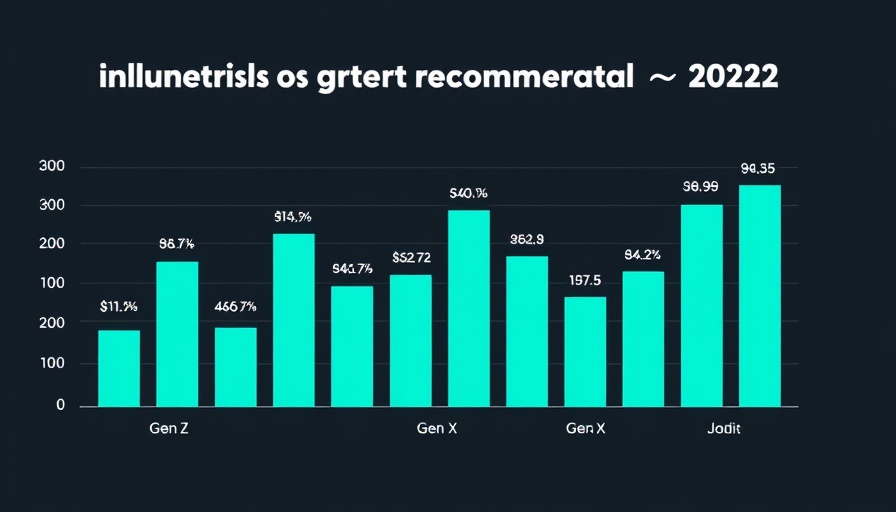
Understanding Gen Z: The Digital Natives Shaping Tomorrow
As brands continue to navigate the digital landscape, one consumer segment stands out: Generation Z. Born between 1997 and 2012, this cohort has grown up in a world dominated by technology and has distinctive preferences that challenge traditional marketing strategies. Understanding their unique behaviors and values is essential for brands looking to engage this pivotal audience.
Unpacking the Gen Z Mindset
Gen Z is often characterized by its diverse backgrounds, social consciousness, and digital fluency. This generation prioritizes authenticity and transparency in brands, often demanding that marketing not only informs but also aligns with their values. For example, they tend to engage with brands that take clear stances on social issues and support sustainable practices. In addition, they are also keen on inclusive marketing that reflects their multifaceted identity.
How Digital Marketing Strategies Must Adapt
Brands must pivot their strategies to resonate with Gen Z's preferences. Social media platforms like TikTok and Instagram are their favorite hangouts, making these channels critical for outreach. Moreover, content marketing is evolving; Gen Z favors short, engaging video content over long-form articles. By focusing on audio-visual content and leveraging user-generated content, brands can foster a sense of community and encourage engagement.
The Role of Influencer Marketing
Influencer marketing holds significant sway over Gen Z's purchasing decisions. Collaborating with micro-influencers—individuals with smaller but engaged followings—can create genuine connections and enhance brand credibility. Brands can benefit by identifying influencers who share their core values and resonate authentically with their audience. In fact, 60% of Gen Z would rather buy from a brand endorsed by an influencer they follow than directly from a brand itself.
Content That Connects: The Importance of Storytelling
Compelling narratives are a powerful tool to engage Gen Z. Brands should focus on storytelling that not only entertains but also educates and inspires. Personal anecdotes from real customers can be integrated into marketing campaigns, fostering authenticity and relatability. As Gen Z consumers seek personal connections, this approach can enhance brand loyalty and trust.
Leveraging Data for Tailored Experiences
Data-driven marketing becomes indispensable when addressing Gen Z's individual preferences. Brands can utilize analytics and customer journey mapping to design personalized marketing messages that resonate on a deeper level. Implementing AI-driven tools can also streamline marketing automation and optimize content distribution strategies, ensuring messages reach Gen Z effectively.
Future Trends: What Lies Ahead
With Gen Z taking center stage in the consumer marketplace, brands must remain agile and responsive to emerging trends. Voice search optimization and augmented reality (AR) experiences are likely to gain traction, reshaping how consumers interact with brands. For marketers, staying ahead involves continually evolving digital marketing strategies to keep pace with Gen Z's shifting expectations.
Conclusion: The Path Forward for Brands
For businesses aiming to succeed in the modern marketplace, understanding Gen Z is no longer optional; it’s a necessity. Companies must embrace innovation while advocating for social responsibility and authenticity. By integrating these insights into their marketing approaches, brands can cultivate meaningful relationships with the Gen Z audience, driving engagement and loyalty in an increasingly competitive landscape.
 Add Row
Add Row  Add
Add 




Write A Comment